Bushido: The Timeless Samurai Code of Honor
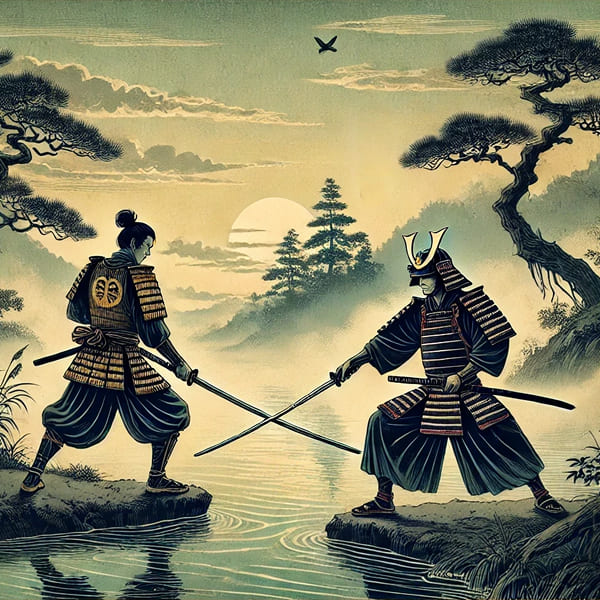
When you think of a samurai, what comes to mind?
A sharp sword? Fearless battles? Behind the armor lay something far stronger than steel itself—Bushido, a way of life built on respect, loyalty, and integrity. This spirit shaped Japan’s history—and still speaks to us in surprising ways today.
Maybe you’ve heard the word Bushido before. It sounds powerful, and you might know it’s connected to the samurai—but what does it really mean? Don’t worry—by the end of this article, you’ll have a clearer picture of what Bushido truly is.
Join us as we explore the timeless spirit of Bushido and discover why it continues to inspire the world.
What Is Bushido?
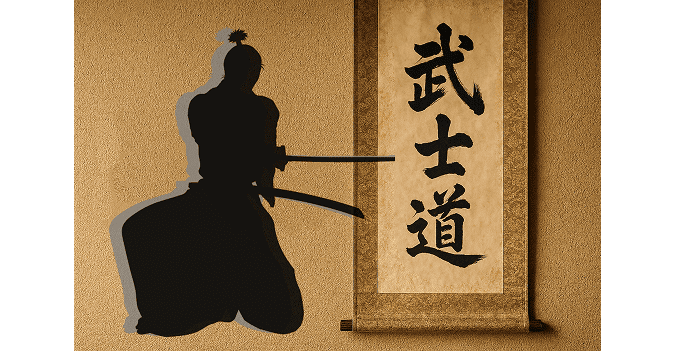
First, let’s take a closer look at what Bushido (武士道) really means.
The word itself translates as “the way of the warrior.” It was the guiding spirit of Japan’s samurai. But Bushido was never just about fighting or winning battles. It was more like a philosophy of living—a set of values that taught a warrior:
| Bushido teaches how to… | Meaning |
|---|---|
| Act | How to behave with integrity |
| Treat others | Showing kindness and respect |
| Face life with dignity | Meeting challenges with honor |
And at its core, Bushido was built on three essential ideas—the foundation of a samurai’s way of life.
| Virtue | Everyday Meaning |
|---|---|
| Courage | Facing danger without fear |
| Respect | Living politely and harmoniously |
| Honor | Making choices you can be proud of |
These ideas gave the samurai their strength—not only on the battlefield, but also in the way they lived day to day.
Bushido and Chivalry: Two Codes of Honor
For readers outside Japan, it may help to think of chivalry, the code of honor followed by medieval knights in Europe. Just as knights were expected to be brave, loyal, and to protect the weak, samurai lived by values like loyalty, honesty, compassion, and integrity.
Let’s take a quick look at a simple side-by-side comparison.
| Aspect | Bushido (Samurai, Japan) | Chivalry (Knights, Europe) |
|---|---|---|
| Meaning | “Way of the Warrior” (武士道) | From French chevalerie, meaning “knighthood” |
| Core Values | Honor, loyalty, respect, sincerity, courage, kindness | Honor, loyalty, courtesy, bravery, protecting the weak |
| Spiritual Roots | Inspired by Confucianism, Zen Buddhism, and Shinto | Shaped by Christianity and medieval court traditions |
| Role in Society | Samurai served their lord (daimyo) and kept order in society | Knights served their king or lord and defended the church |
| Symbols | Katana (sword), armor, ritual of seppuku (honor in death) | Sword, shield, cross, quests like the Holy Grail |
| Cultural Legacy | Still seen in martial arts, business values, and Japanese culture | Remembered in stories, knight ceremonies, and ideals of gentlemanly behavior |
In other words, Bushido was less about carrying a sword…and more about carrying oneself with honor. That’s why its lessons still feel powerful and meaningful, even centuries later.
Was Bushido a Rulebook?
We’ve seen that Bushido was more than just a way of fighting—it was a philosophy that shaped how samurai lived day to day.
But does that mean every samurai followed the exact same code of conduct?
It’s easy to imagine Bushido as a strict rulebook that all warriors had to obey. The truth, however, is that there was never one official set of rules. Instead, Bushido was more like a shared way of thinking that grew and changed over time. Different clans, regions, and historical periods all shaped it in their own ways.
Where Did Bushido’s Spirit Come From?
The spirit of Bushido was shaped by the fusion of several traditions and beliefs from Japan:
-
1. Confucianism
Loyalty between lord and vassal, respect within family, and duty in society. -
2. Zen Buddhism
Calmness in the face of death, discipline through meditation, and acceptance of life’s impermanence. -
3. Shinto
Purity, reverence for nature, and respect for ancestors and the divine in daily life.
Rather than being written down as law, Bushido was passed on through customs, teachings, and everyday practice.
It was less about memorizing rules, and more about living with honor—no matter the situation.
How the World First Learned About Bushido
Do you know how the world first came to learn about Bushido? Surprisingly, it wasn’t through ancient scrolls or samurai manuals.
It was thanks to a famous book that introduced Bushido to people outside Japan for the very first time. That book was Inazo Nitobe’s Bushido: The Soul of Japan, published in 1900.
At the time, Japan had only recently ended more than two centuries of isolation from the outside world. For generations, the country had limited contact with foreign nations, but by the late 19th century it was beginning to open its doors. In this moment of change, Nitobe wanted to explain the spirit of the samurai in a way Western readers could understand.
What Nitobe Wrote
In his book, Nitobe compared Bushido to chivalry, the code of knights in Europe. He presented Bushido not only as a warrior’s ethic, but as a guide to moral character.
He highlighted values such as:
- Loyalty — devotion to one’s lord, family, and community
- Honor — protecting one’s reputation and living with dignity
- Courage — doing what is right even in the face of danger
- Kindness — showing compassion and mercy, even toward the weak
The Global Impact of His Book
The book quickly spread overseas and became very popular. For many readers in the West, this was their very first introduction to the samurai spirit. And even today, if you’ve heard the word Bushido before, there’s a good chance it was thanks to Nitobe’s influence.
Of course, Nitobe’s version of Bushido was not a complete history. He carefully chose which parts to emphasize, and his interpretation was sometimes idealized. But thanks to his work, Bushido became known around the world as a philosophy of honor and integrity— an image that still influences how people think of the samurai today.
A small break — a little side note
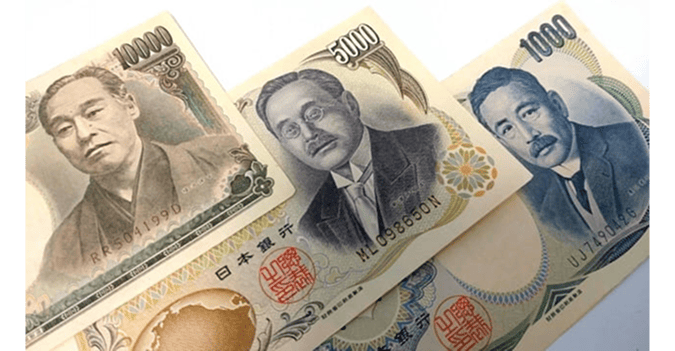
Nitobe is best known for introducing Bushido to the world, but that wasn’t the only reason Japan chose to honor him on its currency.
He was also:
- an educator, teaching at Tokyo University and Sapporo Agricultural College (today Hokkaido University)
- a diplomat, serving as Under-Secretary General of the League of Nations
- a peace advocate, often called the “Bridge across the Pacific” for promoting international understanding
Nitobe’s portrait appeared on the 5000 yen note until 2007, and even today, these older bills are still valid in Japan. Interestingly, after Nitobe, the 5000 yen note design changed several times. Still, for many Japanese people, when you say “the 5000 yen bill,” they instinctively think of Inazo Nitobe.
His legacy on the currency is a reminder that his influence went far beyond Bushido— he was a man who connected Japan with the wider world.
The Samurai Spirit Through History
We’ve seen that Bushido was not a fixed rulebook, but something that developed over time.
So how did it actually change and evolve through Japan’s long history?
Let’s take a closer look at how the spirit of the samurai was shaped in each era.
1. Early Beginnings
The story of Bushido begins with the birth of the samurai themselves. In the Heian period (794–1185), warrior families started to rise in power, marking the first steps toward what would later be known as the samurai class.
Here, the foundations of loyalty, military skill, and a sense of duty began to take root.
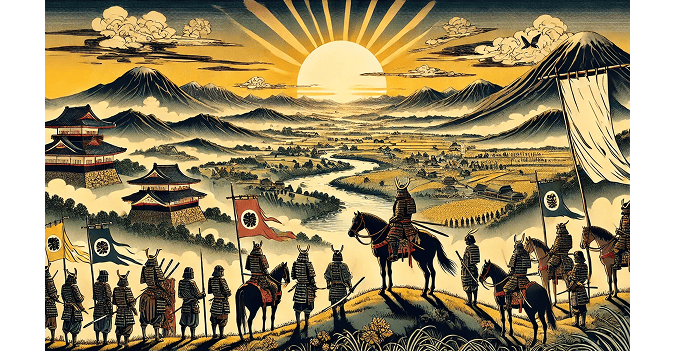
2. Rise of the Samurai
This was the moment when the samurai truly stepped onto the stage of history.
By the Kamakura and Muromachi periods (1185–1573), they had seized power and become Japan’s ruling class.
Warriors were no longer just fighters—they were leaders shaping the destiny of the nation.
Loyalty to one’s lord and strict discipline, both in battle and in daily life, became essential virtues during this time.
3. An Age of Constant War
The Warring States period (15th–16th century) was one of the most turbulent times in Japanese history.
Powerful lords fought endlessly for control, and the country was torn apart by constant battles and shifting alliances.
During this time, samurai were expected to:
- endure hardship
- fight bravely
- put the needs of their lord above their own lives
Bushido in this era was less about lofty values and more about survival.
Samurai had to show complete loyalty, follow strict discipline, and be ready to give up everything—even their lives—on the battlefield.
4. A Time of Peace
In sharp contrast to the Warring States period, the Edo period (1603–1868) brought more than 250 years of peace.
With no constant battles to fight, the role of the samurai began to change.
Instead of proving their loyalty only through war and sacrifice, they were now expected to show their worth through:
- ritual
- learning
- refined behavior
Many writings from this time recorded ideas of courtesy, discipline, and honor—concepts that later came to be closely linked with Bushido.
In this peaceful era, Bushido became less about dying on the battlefield, and more about living with dignity in everyday life.
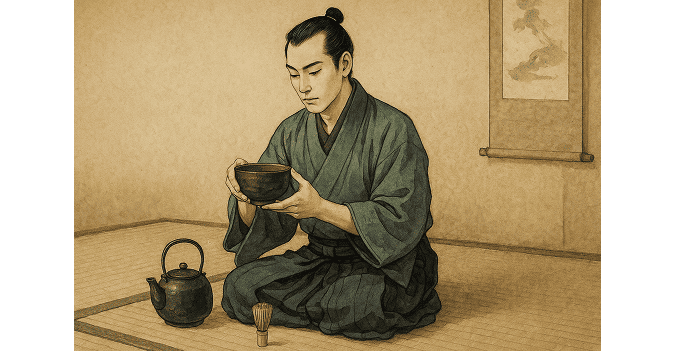
A Living Spirit
Through these centuries, Bushido was never a fixed set of laws created by one person or imposed from above.
It grew naturally out of how samurai chose to live—shaped by the realities of their times and the challenges they faced.
In that sense, Bushido was less an invention and more a living spirit.
What began as the everyday conduct of warriors gradually became a philosophy with lasting value— a moral compass not only for the samurai of the past, but also for those who seek meaning today.
The Core Virtues of Bushido
So far, we’ve seen that Bushido was a philosophy—a way of life built on virtues and discipline. But what exactly were those virtues?
To explore this more clearly, let’s turn to the famous book by Inazo Nitobe, Bushido: The Soul of Japan (1900), which presented Bushido to the world.
The Seven Virtues
According to Nitobe, the essence of Bushido can be seen in seven main virtues:
-
1. Gi (Rectitude / Righteousness)
The ability to choose the right path with fairness and justice. -
2. Yu (Courage)
Not reckless aggression, but doing what is right—even in the face of fear. -
3. Jin (Benevolence)
Showing compassion and mercy, especially toward those weaker than oneself. -
4. Rei (Respect / Politeness)
More than good manners—it means treating others with dignity and humility. -
5. Makoto (Sincerity / Honesty)
A samurai’s word was his bond. Truthfulness was seen as the mark of honor. -
6. Meiyo (Honor)
Protecting one’s reputation and living in a way that others can respect. -
7. Chugi (Loyalty)
Absolute devotion to one’s lord, family, or duty—no matter the cost.
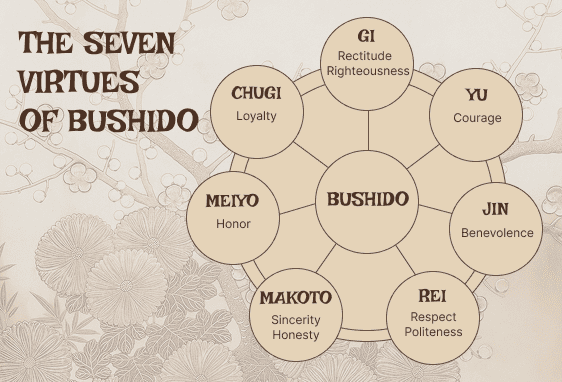
Bushido’s Virtues in Japanese Life Today
The virtues of Bushido once lived alongside the samurai themselves.
But when the samurai class disappeared, these values did not vanish with them.
Instead, they were quietly passed down through generations and remain deeply rooted in the lives and customs of the Japanese people today.
Here are a few examples:
-
Rei (Respect / Politeness)
Seen in daily manners such as bowing, showing humility, and treating others with dignity. -
Chugi (Loyalty)
Reflected in group-oriented values at school and in the workplace, where commitment to one’s team or company is highly respected. -
Makoto (Sincerity / Honesty)
Valued in personal relationships and education, where being truthful and genuine builds trust. -
Yu (Courage)
Not just on the battlefield, but in everyday perseverance—such as working hard through challenges or standing up for what is right.
These examples show that Bushido’s virtues are not only historical concepts, but living values that continue to shape Japanese culture and identity today.
Bushido’s Enduring Legacy in Modern Japan and Beyond
Bushido may have been born in the age of the samurai, but today it is no longer limited to Japan.
Over time, it has grown into a philosophy that people around the world admire and seek to learn from—far beyond its original roots in Japanese culture and tradition.
Today, Bushido’s influence can be seen in many parts of the world. For example:
- In martial arts schools abroad, Japanese practices like kendo and Judo often include not only physical training but also lessons in respect and discipline.
- In literature and film, stories like Seven Samurai or The Last Samurai have inspired audiences with themes of honor, sacrifice, and loyalty.
- In leadership and self-improvement, Bushido is sometimes used as a model for integrity, perseverance, and moral strength.
In this way, Bushido has grown beyond its Japanese roots and become a philosophy of global inspiration.
A Spirit That Still Inspires
Bushido may no longer guide warriors on the battlefield, but it continues to guide people in how they live, learn, and lead.
From Japan to the wider world, the virtues of Bushido remain a timeless source of inspiration—reminding us that true strength lies not only in power, but in honor, respect, and sincerity.
Why Bushido Still Matters Today
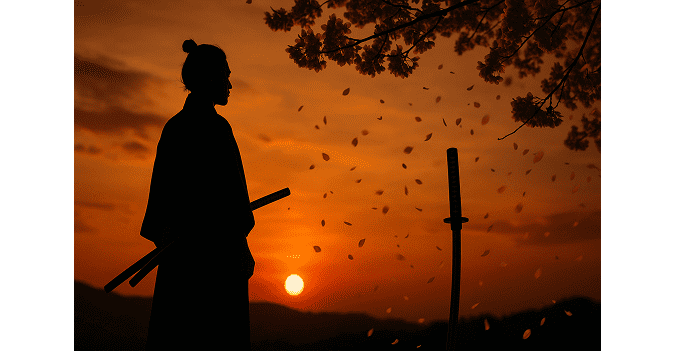
Bushido began as the way of the samurai, but its heart was always about more than battle. It was about how to live with honor, treat others with respect, and face life with courage.
Even though the samurai themselves are long gone, the values of Bushido have proven timeless.
They continue to guide Japan’s culture, inspire people around the world, and remind us that true strength is not found in power alone. In a world that often feels uncertain, Bushido offers a simple but powerful lesson:
live with integrity, act with compassion, and carry yourself with dignity.
That is why Bushido still matters today—not as a rulebook from the past, but as a living philosophy that speaks to the human spirit across time and cultures.